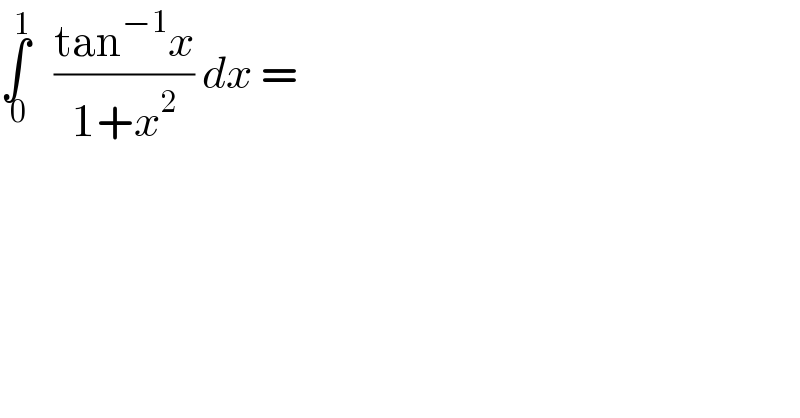
Question and Answers Forum
Question Number 43624 by peter frank last updated on 12/Sep/18

Commented by math khazana by abdo last updated on 13/Sep/18
![let I = ∫_0 ^1 ((arctanx)/(1+x^2 ))dx let integrate by parts u^′ =(1/(1+x^2 )) and v^ =arctanx ⇒ I =[arctan^2 x]_0 ^1 −∫_0 ^1 ((arctanx)/(1+x^2 ))dx =(π^2 /(16)) −I ⇒ 2I=(π^2 /(16)) ⇒I =(π^2 /(32)) .](Q43631.png)
Answered by username last updated on 13/Sep/18

| ||
Question and Answers Forum | ||
Question Number 43624 by peter frank last updated on 12/Sep/18 | ||
 | ||
Commented by math khazana by abdo last updated on 13/Sep/18 | ||
![let I = ∫_0 ^1 ((arctanx)/(1+x^2 ))dx let integrate by parts u^′ =(1/(1+x^2 )) and v^ =arctanx ⇒ I =[arctan^2 x]_0 ^1 −∫_0 ^1 ((arctanx)/(1+x^2 ))dx =(π^2 /(16)) −I ⇒ 2I=(π^2 /(16)) ⇒I =(π^2 /(32)) .](Q43631.png) | ||
Answered by username last updated on 13/Sep/18 | ||
 | ||
| ||